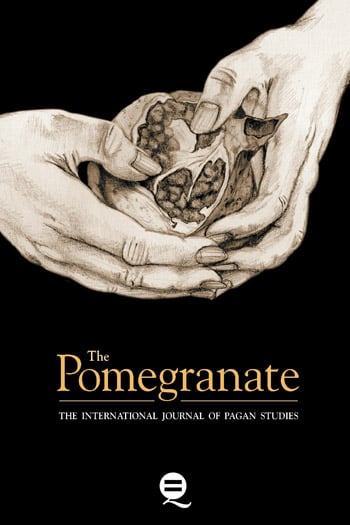Expanding Religious Studies
The Obsolescence of the Sacred/Secular Framework for Pagan, Earthen and Indigenous Religion
Keywords:
Defining religion, Western academic understanding, 'Irekawari'Abstract
Through an examination of the concepts of universality and indigenousness, the authors' argument is that a more comprehensive definition of religion is possible than there is via traditional Western academic understanding. Instead of the more restricted, confrontational and inadequate sacred/secular framework, the Japanese principle of Irekawari suggests the possibility of a mutual conversion between the sacred and the profane. The author explores two conceptual dyads: that of hare festive and ke ordinary that includes magic and sorcery along with religion and the sacred within a broader framework; and that between i/yu (a Japanese religious linguistic element) and ke that allows the consideration of defilement, pollution, danger, and obstacle as religiously significant, for example, the funeral ceremony, spiritual curing, and so on. The authors' endeavour is to avoid the necessity of positing a transcendent or supernatural reality for the study of religion in its fullest understanding.
References
Douglas, Mary. Purity and Danger: An Analysis of Pollution and Taboo. London: Routledge & Kegan Paul, 1966.
Durkheim, Émil. Les formes élémentaires de la vie religieuse: le système totémique en Australie. Paris: Felix Alcan, 1912.
Evans-Pritchard, Edward. Theories of Primitive Religion. Oxford: Clarendon Press, 1965.
Harvey, Graham A. “Violence with Impunity: Maori Religious Action without Transcendence.” Paper presented at the nineteenth world congress of the International Association for the History of Religion, Tokyo, 2005
Lokensgard, Kenneth Hayes. “Created Things in the Blackfoot Universe and the Interpretive Inadequacy of ‘Supernatural’.” Paper presented at the nineteenth world congress of the International Association for the History of Religion, Tokyo, 2005.
Miyamoto, Tuneiti. “People Living with the Sea.” In Collected Writings of Miyamoto Tuneiti, XL. Tokyo: Miraisha, 1987.
Okada, Sigekiyo. “Imi in Ancient Times—Japanese Basic Belief.” Kokusho-kankoukai (1982): 26-42.
Sakurai, Tokutarou. Studies in Japanese Folk Beliefs. I. Folk Codes in Communities. Tokyo: Yosikawa-koubunkan, 1988.
Sakurada, Katunori. Religions of the Sea. Kyoto: Tankousha, 1970.
Smith, Wilfred Cantwell. The Meaning and End of Religion. San Francisco: Harper & Row, 1962.
York, Michael. Pagan Theology: Paganism as a World Religion. New York: New York University Press, 2003.

